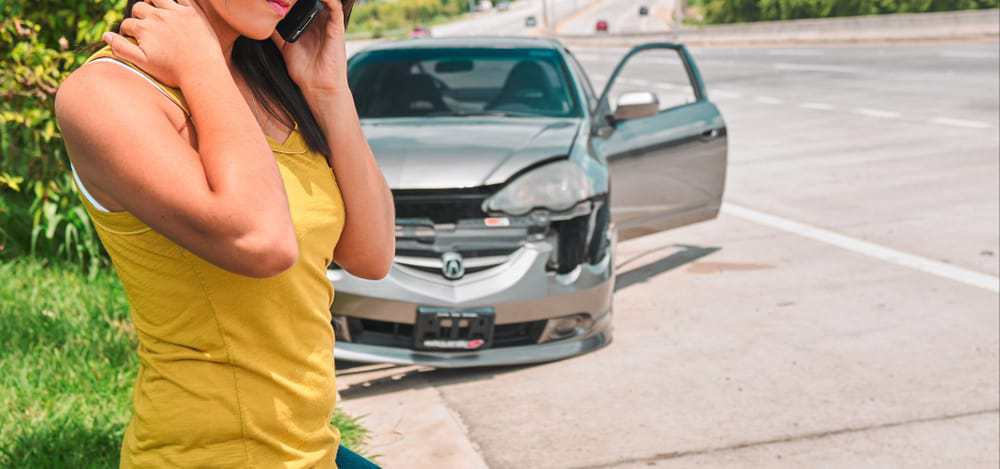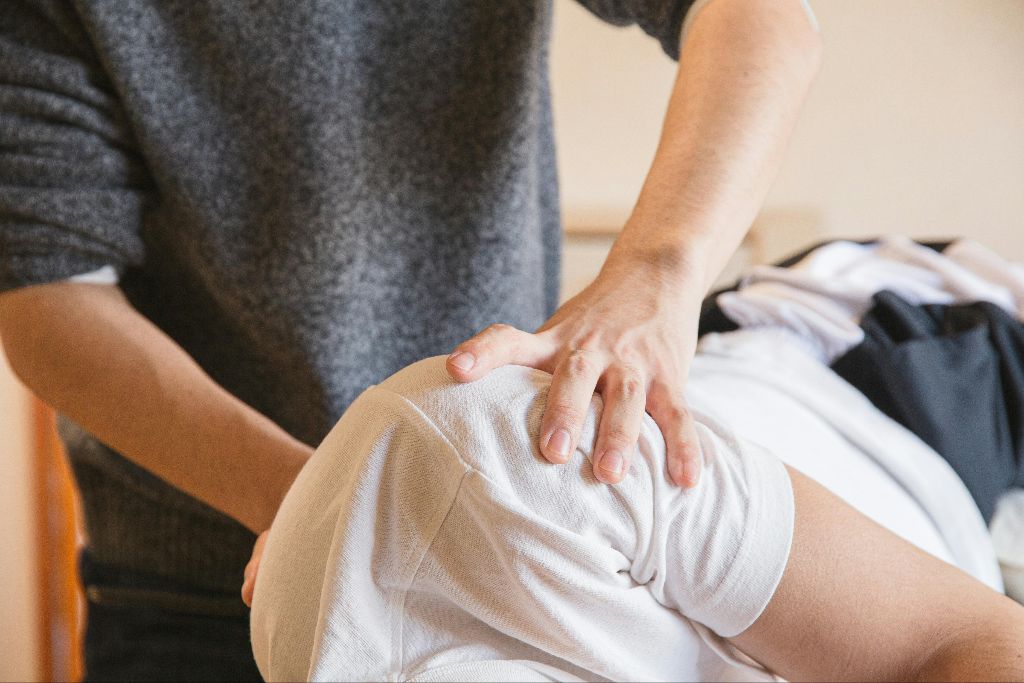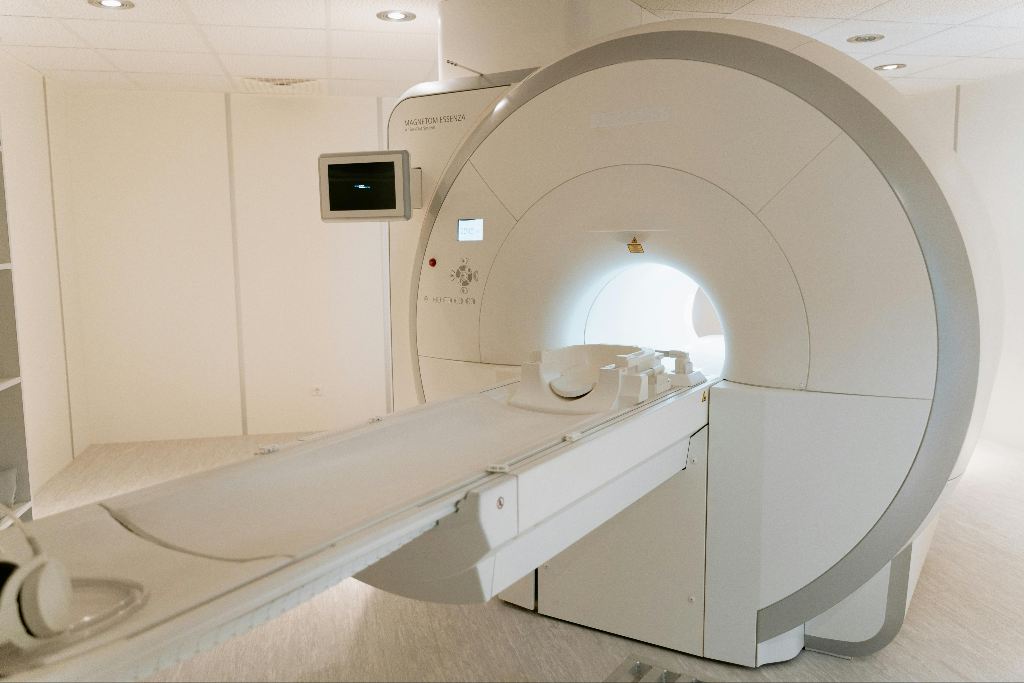Car accidents can happen to anyone, anytime, anywhere. Although some can result in serious, even fatal injuries, thankfully, most people involved in a car accident only experience minor injuries.
It can seem as if you may have walked away from a car accident completely unharmed. You feel excellent and might not think anything is wrong. But our bodies can have interesting reactions to trauma that delays our response to injury. Adrenaline can also mask symptoms of injuries from a car accident for the time being.
If you have been in an accident, be aware of delayed symptoms that signal an injury after a car accident. If you suffer from delayed injuries, AICA’s car accident clinic can help alleviate pain and bring relief after a car accident.
Be on the alert for these six possible delayed injuries that can occur hours, days, or even weeks after a car accident.
Delayed Symptoms After a Car Accident
The body’s response to a car accident can be complex and varied, leading to delayed symptoms that emerge hours, days, or even weeks after the incident. Understanding these symptoms, their potential causes, and the importance of prompt medical attention can significantly affect recovery outcomes. The range of potential delayed symptoms include:
Delayed Headache After a Car Accident
Headaches that develop after a car accident can range from mild to severe and may indicate various underlying conditions such as concussions, blood clots, or neck injuries. The force of impact can cause the brain to collide with the skull, potentially leading to traumatic brain injuries. Persistent or worsening headaches warrant immediate medical attention to rule out serious complications.
Learn more about delayed headache pain after a car accident
Delayed Neck Pain After a Car Accident
Neck pain, often resulting from whiplash, is a common complaint following a car accident. This injury occurs when the head is suddenly jerked back and forth, causing muscle, ligament, or tendon damage in the neck. Symptoms can include stiffness, soreness, limited range of motion, and sometimes headaches or blurred vision. If neck pain persists or if it’s not related to whiplash, it could indicate a more serious spinal cord injury.
Learn more about delayed neck pain after a car accident
Delayed Back Pain After a Car Accident
Back pain can emerge from various injuries such as whiplash, spinal misalignments, herniated discs, or soft tissue damage. The impact of a car accident can cause vertebrae to shift out of place, putting pressure on the spinal cord and nerves, leading to discomfort, limited mobility, and symptoms like numbness or a tingling sensation. Early intervention by an orthopedic specialist or physical therapist is essential for managing pain and preventing further complications.
Learn more about delayed back pain after a car accident
Delayed Chest Pain After a Car Accident
Chest pain after a car accident may signify rib injuries, internal bleeding, or cardiac trauma. The force exerted by seat belts, though lifesaving, can cause significant pressure on the chest area, leading to these conditions. Any chest pain should be evaluated promptly to ensure there are no life-threatening injuries.
Learn more about delayed chest pain after a car accident
Delayed Knee Pain After a Car Accident
The knee is vulnerable to knee pain and injury during car accidents due to direct impact or abrupt stopping forces. This can result in ligament tears, fractures, or sprains. Symptoms like swelling, severe pain, and difficulty in movement indicate the need for a thorough medical evaluation to address potential knee injuries.
Learn more about delayed knee pain after a car accident
Delayed Stomach Pain After a Car Accident
Stomach or abdominal pain could be a sign of internal bleeding or injuries to internal organs. Accompanied by symptoms such as dizziness, fainting, or noticeable bruising, this type of pain should never be ignored. Internal bleeding can be life-threatening and requires immediate medical attention.
Learn more about delayed stomach pain after a car accident
Delayed Hip Pain After a Car Accident
Hip pain may indicate fractures, dislocations, or soft tissue injuries, which might not be immediately apparent. Pain, difficulty bearing weight, or visible bruising in the hip area are signs that should prompt a medical evaluation to prevent further damage.
Delayed Shoulder Pain After a Car Accident
Shoulder pain can result from the body’s jerking motion during an accident or direct impact, potentially leading to rotator cuff injuries or dislocations. Such injuries often manifest as pain, weakness, or reduced range of motion in the shoulder area.
Learn more about delayed shoulder pain after a car accident
Delayed Vertigo After a Car Accident
Experiencing vertigo or dizziness after a car accident can be indicative of vestibular system damage or a concussion. Balance issues, nausea, or headaches following an accident should be taken seriously as they can affect your daily functioning and quality of life.
Learn more about delayed vertigo pain after a car accident
Other Delayed Symptoms After a Car Accident
Beyond the immediate physical injuries, car accident survivors should be alert to other delayed symptoms that could indicate deeper issues:
- Emotional and Psychological Distress: Symptoms like anxiety, depression, and PTSD may surface weeks or even months after an accident, reflecting the emotional impact of the trauma.
- Sleep Disturbances: Difficulties sleeping, including insomnia, may arise from physical discomfort or stress related to the accident.
- Fatigue: Unexplained tiredness can result from emotional distress, concussion, or other hidden injuries.
- Cognitive Issues: Problems with concentration or memory might indicate traumatic brain injuries or psychological stress.
- Sensory Changes: Delayed vision or hearing changes, including blurry vision or ringing in the ears, could stem from the accident’s impact.
- Numbness or Weakness: These could be signs of nerve damage or spinal injuries not immediately apparent.
- Appetite Changes or Weight Loss: Significant changes in eating habits or unexpected weight loss can reflect stress or the body’s response to trauma.
Recognizing these symptoms as potential indicators of delayed injuries is the first step towards recovery. For guidance on which specialist to consult based on your symptoms, learn more about Which Doctor Should I See After a Car Accident?
Delayed injuries, while serious, can be effectively managed with prompt attention and care. AICA Orthopedics is dedicated to providing top-tier care, ensuring accurate diagnoses and comprehensive treatment plans tailored to your needs. With access to some of the best orthopedic specialists in Atlanta, we’re here to support you every step of the way towards recovery. Don’t hesitate to reach out and schedule your appointment today.





